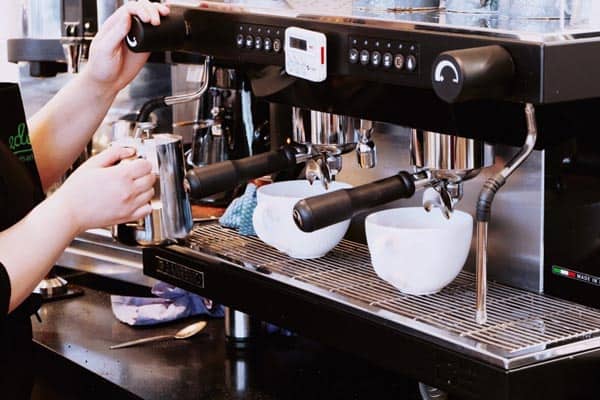Understanding How Long Coffee Makers Last and Factors That Influence Their Longevity
You need your coffee maker to work at full capacity each morning, but this can be difficult to do as your appliance ages.
If you have an older coffee pot, you may wonder how long your ordinary coffee maker will last and when it’s time to replace it. Luckily, we have the answers for you.
Generally, you can expect a solid-quality coffee pot to last around five years without failing. There are a few things you want to consider when you shop, along with routine maintenance steps you can take to ensure your coffee maker lasts longer. We’ll outline them all for you below.
How Can Standard Coffee Makers Last Longer Than Electronic Ones?
A standard coffee pot can easily last up to five years, and it can last even longer if you take the time to clean both the inside and outside.
A simple coffee maker with a programmable timer and a standard design has fewer bells and whistles than some high-end products, but this makes all the difference.
You can get a simple coffee maker with a backwater reservoir that feeds the water through a tube to the heater coil.
The coil heats the water to a boiling temperature before the steam pushes the heated water through the next phase and into your coffee pot’s showerhead. Then, the coffee drips down into your glass carafe and is ready to go into your cup.
Simple coffee makers don’t have any moving parts because they use a stationary heating element and physics to push the water into the heating element and out through the shower head into your carafe.
This simple coffee maker can easily last a decade, assuming your heating element doesn’t fail. As long as there isn’t any blunt force damage to the machine, the first things that normally stop working are the electronic elements.
Why Do Expensive Coffee Makers Fail?
Some high-end coffee makers won’t make it as long as the standard ones. While their heating elements will work fine for years, all of their other components will start to fail much quicker due to the electronics’ complexity. Let’s look at Keurig brand coffee makers as an example.
You will pay more for a Keurig coffee machine than a basic drip coffee maker because Keurig machines utilize water pumps to move the water from the reservoir chamber to the k-cup.
These pumps won’t last as long as the tubing and steam pressure on a basic drip coffee maker, even though they cost more.
The fewer parts or moving parts the coffee maker has, the longer time the machine will continue to run. Simple coffee makers contain tubing and a heating element, while expensive grind-and-brew coffee makers have separate reservoirs to give you hot water on demand and make specialty drinks. This makes for a much more complicated machine with more parts that can fail.
The Rule of Thumb for Coffee Maker Longevity
Keep in mind that a well-made but basic coffee maker will easily last more than a decade, and this is without taking excellent care of it. More high-end machines that are more complicated will be very sensitive and have a huge variation in the quality of their construction.
This will impact their lifespan, especially if you don’t take good care of it.
If you have a high-end machine that you neglect and don’t follow a cleaning schedule, you shouldn’t expect it to last more than five years. It all comes down to the design when it comes to longevity. A simpler design will outlast a more complicated one every time.
Factors That Play Into Your Coffee Maker’s Lifespan
Several factors will help you determine how long your coffee maker lasts until something fails. Knowing them will help you make your machine last much longer, and this can save you money in the long run.
Cleaning
You’ll want to make a point to routinely clean and descale your coffee maker using water and distilled vinegar. The vinegar is acidic enough to get rid of any hard water buildup on the interior or exterior of your coffee maker to help it run in good condition.
You will have to run four brew cycles and let the vinegar and water mixture sit half-brewed for an hour to complete the process, but it’ll help keep your machine running.
Guarantees or Warranties
Most good coffee makers will have a guarantee or warranty attached to them that ensures the company will replace or repair the machine if it fails within a set period. The longer the warranty or guarantee is, the more confident the manufacturer is in their product’s quality.
It’s also a good idea to check and see the terms of the warranty or guarantee, whether it’s full or limited coverage, and what the company will do if you contact them with an issue. Some offer refunds, but good warranties and guarantees will replace the machine at no cost.
Maintenance and Servicing
Almost every coffee maker will come equipped with a manual that details instructions on how you should look after it to keep it running and in good shape.
How closely you follow these instructions will affect how well it works and its lifespan. Making sure that you routinely clean and descale your coffee pot is a must, especially if you use it every day.
You also want to keep your coffee maker away from areas in your home where you’re likely to spill or drop something on it.
If you have a more expensive machine, they usually require you to routinely take them to a service station for maintenance and cleaning. Doing so will help you keep it running because they’ll notice any failing parts before they fail.
Quality
Price doesn’t always dictate quality, and this is especially true when it comes to coffee makers. You want to find a balance of price and materials, and you can usually tell from a manufacturer’s reputation whether or not they use parts that will last.
Do your research, read reviews, pick out the style of coffee maker that suits you the best, and buy from a well-known company.
Usage
Coffee makers that go through light use will usually last longer than those that get used once or multiple times daily. One constantly on and working will fail quicker than a machine you sit on your counter and only bring out a few times a year to make coffee.
It could be worth getting a higher-end machine if you’re going to use it sparingly and a more basic model for hard use because it’ll have fewer moving parts and electronics.
Water Filters
Many coffee makers come with water filters that prevent hard water buildup from accumulating on your tubing and pumps and accumulating.
Using them can help your machine work longer because it’ll reduce the mineral deposits into its interior components. They dissolve in warm water, so you can run a cleaning cycle with them monthly if you have hard water.
Frequently Asked Questions
1. When should you replace your coffee maker?
If you’ve tried cleaning your coffee maker and notice that it isn’t running at maximum capacity, it may be time to buy a new one. If it breaks down and refuses to work as it should and you’re not under warranty, replace it with a new machine.
2. Do you have to use filtered water in your coffee maker?
No, you can use regular tap water in your coffee maker. However, you should clean it more frequently if you have hard water because these minerals can build up and damage the pumps and tubing in your coffee maker.
3. How often should you descale your coffee maker?
If you use your coffee maker routinely, try to describe it once a month with vinegar. Not only will this remove any hard water buildup, but it’ll also wipe out any mold or bacteria growing inside your machine. In turn, this makes it healthier to use.
4. Do you want a full or limited warranty on your coffee maker?
You always want to see a full warranty on your items instead of a limited warranty because a full warranty will cover more potential problems. Limited warranties are very strict and limiting.
Bottom Line
Now you know that the average coffee maker can last between 5 and 10 years. We’ve outlined why you may want to go with a simple drip coffee maker over a high-end one, talked about factors that impact your coffee machine’s longevity, and answered a few of your questions.
You can use this guide to make your final choice.






